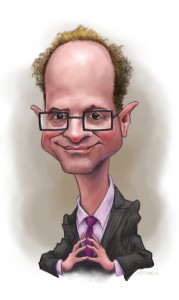 Camp Marmalade
Camp Marmalade
by Wayne Koestenbaum
Nightboat Books. 409 pages, $18.95
Camp Marmalade sounds like a nice place to send gay boys for the summer, but since it is the title of Wayne Koestenbaum’s latest book, I approach it with trepidation. For, like any summer camp, this one—despite the sweetness of its name—is an arena to learn the arts of humiliation. The knots one learns to tie will be later used in BD/SM. And you can earn a prize in elementary waterboarding. “Humiliation,” Koestenbaum admits, “colors the way I see the world.” Camp Marmalade is shot in humiliation’s Technicolor.
In his book-length essay Humiliation (2011), Koestenbaum distinguishes “humiliation” from its cousin, “shame.” Shame can be experienced in isolation. Only you know, for example, that you peeked at someone else’s exam or shoplifted condoms, or worry about the size of your hands. Humiliation, in contrast, is an “interpersonal process. One is humiliated only in other people’s minds.” He insists that humiliation involves a triangle: the humiliator (abuser), the humiliated (abused), and the witness (who can side with either party or both).
This formulation maps uneasily onto the triangular writing process: subject, writer, and reader. The author can be humiliated by saying what the reader regards as stupid, obvious, or gauche. Or the writer may reveal the subject as stupid, deceitful, or gauche. Or the author may wish to make his readers feel stupid, insensitive, or gauche. All scholars are abusers, according to Koestenbaum, since “to study a subject is to humiliate the subject and to humiliate oneself by the process of studying it” (author’s italics). “Need I humiliate myself to write this book?” he asks, as if the question were not rhetorical, and answers by saying that identity itself “germinates from humiliation’s soil.” Language cannot be employed without humiliation. You can’t even listen in silence without being tarred by humiliation’s wide brush. Humiliation doesn’t just “color” the way Koestenbaum sees the world; it forms the very outlines of that world. So you can see why I enter Camp Marmalade with a certain trepidation. As a reader, I can be either among the abused or the abusers. Is there no way out of this predicament?
 For the author there are clear ways of mitigating the humiliation of writing. First, one could speak “from a position of wisdom, omniscience, authority.” God cannot be humiliated even if he’s hung on a cross. If you aren’t omniscient, you might speak in the abstract and theoretically. Finally, though Koestenbaum doesn’t explicitly state it, you can reduce humiliation by pre-empting it. If you’re afraid that someone will notice your small hands, you should point them out first: “My hands are small but they are strong and beautiful.” To say “My hands are huge. I’ll put them up against anyone’s” is to have lost the battle. Denying the humiliating feature does not pre-empt humiliation but rather increases it.
For the author there are clear ways of mitigating the humiliation of writing. First, one could speak “from a position of wisdom, omniscience, authority.” God cannot be humiliated even if he’s hung on a cross. If you aren’t omniscient, you might speak in the abstract and theoretically. Finally, though Koestenbaum doesn’t explicitly state it, you can reduce humiliation by pre-empting it. If you’re afraid that someone will notice your small hands, you should point them out first: “My hands are small but they are strong and beautiful.” To say “My hands are huge. I’ll put them up against anyone’s” is to have lost the battle. Denying the humiliating feature does not pre-empt humiliation but rather increases it.
A kind of hyperactivity also reduces your chances of being humiliated; moving targets are harder to hit. In any case, Camp Marmalade avoids humiliation chiefly by never settling down. It straddles genres, becoming neither a work of poetry or prose (although it rejects neither). Divided into 42 sections, each subdivided into small “morsels” of language, the book seems to avoid a thematic focus. Camp Marmalade can be started and stopped at any point. This is another strategy to evade or minimize humiliation.
Koestenbaum never speaks with divine omniscience, and yet we are given strange, fortune-cookie advice: “to redeem the hard-on/ like a flash in nobody’s/ pan” or “tickle the ‘retrieved’/ philosophical void fold.” He offers a Zen-like koans like “a boy can/ be a woman’s mother.” But mostly he prefers short, toneless, declarative, unpunctuated sentences. For example, we are informed that “ISIS beheaded a second/ American,” or “the red chair/ I bought my mother/ is broken,” or “I knew daisies differed/ from violet gentians.” Perhaps the period would be too definite a gesture and grounds for humiliation. Certainly keeping them unpunctuated gives Koestenbaum an opening.
Many of these statements are verifiable; any photo would support Koestenbaum’s assertion that “Blythe Danner isn’t burly,” but Koestenbaum’s favorite mode for side-stepping the humiliating is stating the ridiculous in a flat declarative voice. For example, when he declares “My wife/ is John Singer Sargent,” contradicting him does not result in humiliation. Nor can we humiliate him by pointing out that John Singer Sargent is dead and a man, and therefore unable to be anybody’s wife. In much of Camp Marmalade, Koestenbaum is simply camping it up: flatness of affect meets flamboyance of content. Nor does he try to hide this strategy. He admits that “when a listener/ questions my morseling/ method I defend it as prank/ and security.” Puckish, prankish, campy, Koestenbaum comes well defended to answer any questioner.
One notable feature in his defense strategy is the plentiful name-dropping. I arbitrarily chose section #17 for study. In it, he makes reference to Jayne Mansfield, Willa Cather, D. H. Lawrence, D. W. Winnicott, Lana Turner, Barbara Stanwyck, John Berryman, Gustave Moreau, Zelda Fitzgerald, Hannah Arendt, and “Marty” Heidegger. Readers can occupy any of three positions. First, they may recognize the names and thus share Koestenbaum’s associations. They are made to feel like insiders—I’m so sophisticated I get the joke of yoking the two Moreaus—potential fans, even potential humiliators. The next group does not recognize any of the names and is therefore an outsider (and not very likely to read Koestenbaum). Finally, a third group recognizes some but not all of the names, which could place them in the worst position—knowing enough to be humiliated by what they don’t know—not part of the in crowd, but not unaware of their ignorance.
This name-dropping strategy turns Camp Marmalade into a fanzine, a book that only insiders can properly appreciate. Yet Koestenbaum has already warned us in Humiliation about his practice of fandom: “I’ve often feared that the result (if not the intention) of my writing has been to humiliate subjects—singers, stars, artists, intimates. My conscious aim was to celebrate them, but sometimes I’ve been shocked to discover afterward that my unconscious wish was to humiliate them and thereby to grant myself the humiliated identity of traitor, ingrate, tattletale, usurper, soul-catcher, reputation-despoiler, thief.” There is no safety in being a Koestenbaum fan. His pats on the back can leave stab wounds.
Koestenbaum’s most common strategy for defending himself against humiliation is to pre-empt it. Echoing Melville, if not Raymond Chandler, he orders us to “call/ me Public Enema.” Later, he evacuates a string of fecal “morsels”: “ephebe’s disdain/ as I describe/ cloacal prose/ define for intellectual progeny/ the cloacal mother associated/ with sewage/ or else the/ cloacal sublime—writing/ is a waste product/ and therefore disgusts us/ and we choose/ as ethical and lunatic/ stance to form/ literature in waste’s image—/ to write asymptotically/ cloacal literature.” If you already know you’re writing “literaturd,” then you can’t be humiliated if you’re a shitty writer. Your product may be soft or hard, sterile or fertile, but it will all come out as waste, and you won’t be humiliated because you’ve already beaten your abusers to the punch. You wear the cloacal of invisibility.
But what about me, the poor reader? Where does Camp Marmalade allow me to escape humiliation or boredom or just the general cloacal sublime of Koestenbaum’s writing. After all, I’m a witness to what could be a humiliating act. Am I to breathe a sigh of relief that it has failed to occur (has it failed to occur)? Or should I feel disgruntled that I have been cheated of the “bliss” that occurs when “the experience of largeness or magnitude has become overwhelming” (Humiliation)? Is there a way to read this work and not feel humiliated, to throw off Koestenbaum’s fear of humiliation (which is always already a form of humiliation)? What can I do to avoid being an abuser or abused?
The strangest part of reading Camp Marmalade is that I have the feeling that the work wants the reader to occupy the position of psychoanalyst, demonstrating to him that the humiliation he fears and feels is a “color” he projects onto the world. Analysts, by the way, appear with some regularity throughout the book. In one of the more telling references, Koestenbaum tells us to “smile when/ you say my psychiatrist/ died, smile whenever you/ mention a friend’s death/ invert the emotion.” A friend’s death and the psychiatrist’s are one and the same, and he advises responding to them as an “invert” who laughs when he would cry and cries when he would laugh. Using the same logic, we perhaps should invert his rather testy complaint against his various shrinks. He asks, “why/ do shrinks even when off-duty/ refuse warmth and ebullience.” Whose warmth and ebullience are they refusing? The ones Koestenbaum is offering them? Or the “warmth and ebullience” he feels he should be getting? The reason “shrinks” maintain a blank stare is so that you can see that all the pictures you’ve drawn of them are your own projections. In a strange way, Camp Marmalade seems to be begging me to refuse its warmth and ebullience, its nastiness and fears, its gratuitous intellectualizing and name dropping. It seems to be asking me to free it from itself, and the only way I can do this is to remind Wayne Koestenbaum that his hour is over, and I will see him next book.
David Bergman, poetry editor of this magazine, is the author of The Violet Hour: The Violet Quill and the Making of Gay Culture.






